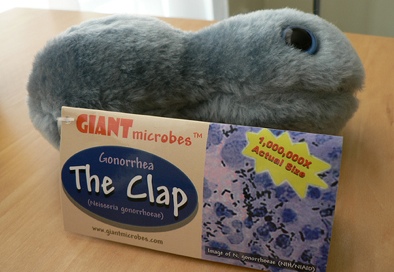
The CDC just released its annual report discussing trends in sexually transmitted diseases in the US (summary here). The upshot: chlamydia and syphilis are on the rise. And gonorrhea is stable (yay?) but at still-high rates. The CDC doesn’t track HPV or herpes in the same way, so we don’t know if these too are increasing.
Why in the world might this be a good thing? The increased rates of STDs could mean higher rates of infection, but then again it may just represent better screening of these diseases. In other words, the higher numbers might be coming back not because there are more cases, but because a) more people are getting tested and b) there are more accurate tests available. This is good seeing as the sexual health industry is evolving to be better both scientifically and in organisation and customer care. There are many Columbia STD testing centres, but also in many other states, cities and countries, meaning that many people won’t have to look far to ensure their sexual health is in good condition.
The scariest part of the STD crisis is just how many people have an infection, and don’t know about it. I’ve had patients of all ages tell me they’re too frightened to get tested, because they “really don’t want to know.” But the consequences of an undiagnosed STD can be devastating. Not only might you unsuspectingly pass chlamydia to a partner, but the infection can cause irreversible damage. For example, STD-inflicted damage to a woman’s fallopian tubes can lead to tubal pregnancy, chronic pelvic pain or infertility.
Knowing you have an STD may suck, but not knowing is worse. If you’re under 25 (or have a partner who is), you should be checked at least once a year for the big bacterial three (chlamydia, gonorrhea and syphilis) as well as HIV and hepatitis*, and every 6 months if your sex life is particularly bountiful. If you’re over 25, get tested with each new encounter or relationship. Treatment for the bacterial infections is very straightforward, from one to several doses of antibiotics.
How often do you get tested for STDs?
*HPV and herpes are more complicated: you can’t directly test for HPV (it’s part of the pap smear), and herpes is best tested by a culture of a bump, not blood tests. But that doesn’t mean you shouldn’t talk to your doctor about them when you’re tested for the other STDs, especially if you suspect you might have been exposed.

















I like long walks, especially when they are taken by people who annoy me.
The best way to protect yourself from std’s will always be abstaining from having sex. If you are sexually active, then you should wear a condom. If you are having sex, have safe sex. If you are having unprotected sex, please get tested.
I requested a test for HPV and was refused, since I am under 30. I had an abnormal biospy, and the local Health Dep. had me terrified. The Dr. I was reffered to explained that the celluar changes are normally gone whithin a year.